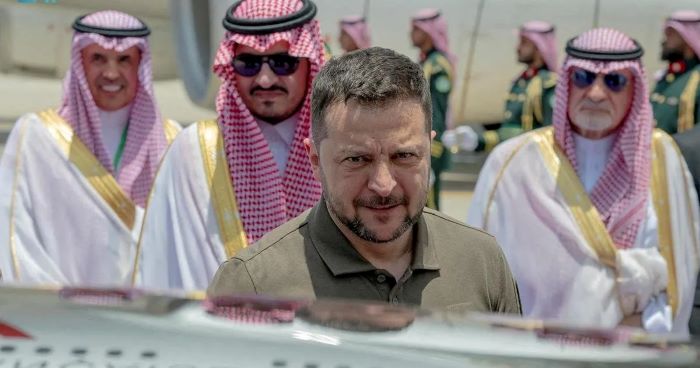Since the full-scale Russian invasion, Ukraine has started to pursue a broader course in international politics, engaging not just with its existing partners but also seeking ties with countries of the Global South. It is these countries that Russia has managed to convince, that Ukraine is merely “a puppet of imperialist powers.” Meanwhile, before February 2022, Ukraine was invisible and often unknown in the countries of the Middle East, Asia, Africa, Latin America, and the Caribbean.
The aim of Ukraine’s outreach is:
- increase global awareness of Russian aggression;
- to elevate Ukraine's status as an important player on the world stage among Global South peoples.
Moreover, the support of these countries is important for implementing Ukrainian President Zelenskyy's initiative to hold a global peace summit to resolve the Russian-Ukrainian war.
However, reaching out to the Global South has been one of the challenges for Ukrainian diplomacy since Russia launched its full-scale invasion. According to an Institute for the Study of War report, Russia continues to position itself as a prominent security provider for authoritarian African regimes. Russian Deputy Defense Minister Alexander Fomin said Russia would soon sign additional military cooperation agreements with six more African countries, adding to the 30 out of 54 African states it already has defense arrangements with.
Why Ukraine needs the Global South
The Ukrainian Central European Forum 2023 in Lviv on November 7-8 discussed why Ukraine needs the Global South and how to reach out to it.
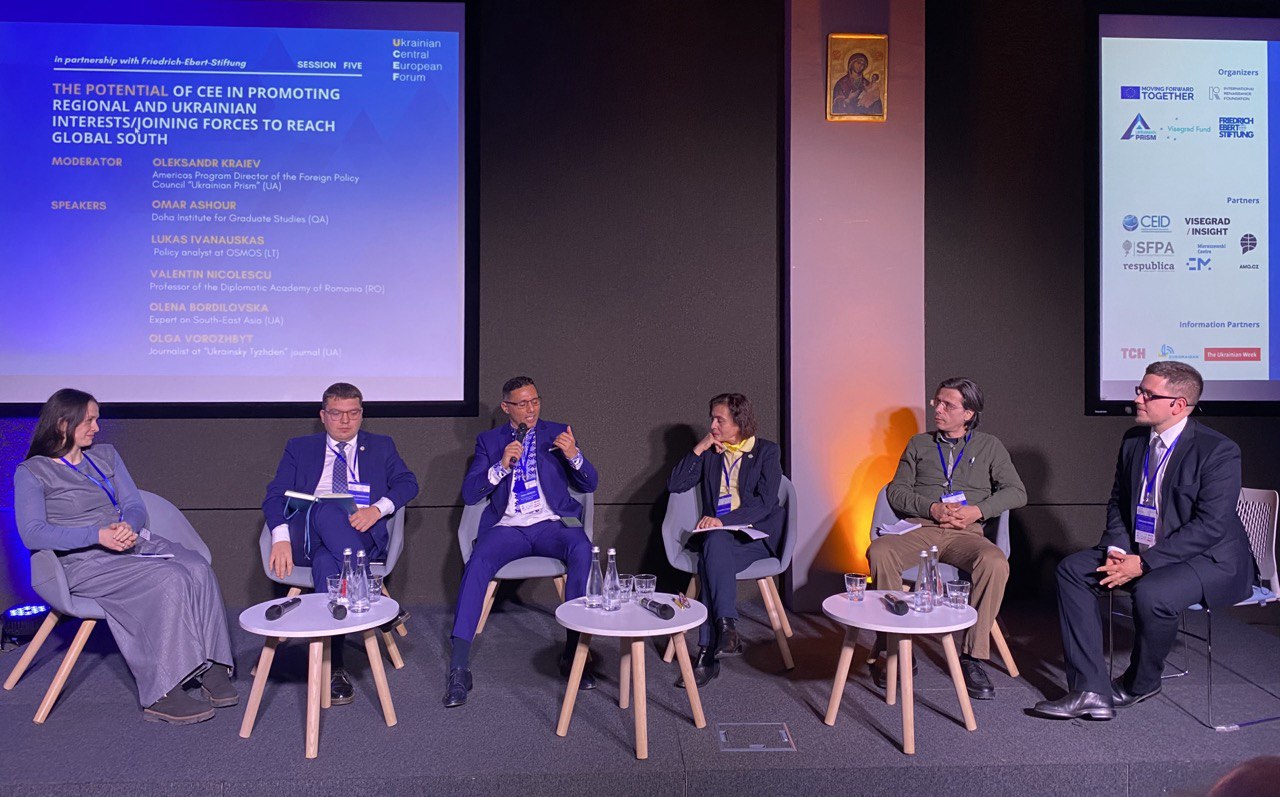
According to professor of Security and Military Studies in Qatar and the UK Omar Ashour, the Global South holds almost 40% of the UN General Assembly votes.
The Global South countries have critical resources impacting Ukraine too. These range from some of the richest countries, like Qatar and Kuwait, to some of the poorest, like the Central African Republic and Sudan. And even though the latter are the poorest, they provide gold, sustaining Russia.
"The resource issue connects Ukraine back to economics. Many countries, including Middle Eastern ones like the notoriously sanctions-busting UAE, serve as loopholes in the sanctions regime against Russia in terms of investments and trade flows,"Ashour added.
In addition, the Global South is a reservoir of weapons that Ukraine desperately requires. Hundreds of thousands of tons of ammunition, and Soviet and post-Soviet weapons systems are stored in the Middle East and the larger Global South.
Omar Ashour explained that for instance, Ukraine will need air defense munitions for systems like the S-300 missile system, the Buk-M systems, and others. The West does not have many of them in terms of munitions and production capacity. However, the Western-made launchers and interceptors are very expensive, and Ukraine will need as many of them as possible to withstand Russia’s incessant missile attacks.
On the other hand, Ashour said the Middle East is extremely complex. The countries there have very different and conflicting policies, even if they are neighbours. Algeria and Morocco, the UAE and Qatar, Egypt and Libya have all either almost or gone to war, quite apart from the ongoing Arab-Israeli conflicts.
How can Ukraine reach out to the Global South?
Ukraine can either inspire the Global South or give them economic aid. Since Ukraine's financial resources and budget are dedicated to the war effort and other critical issues, according to Ashour, Ukraine has to inspire and charm them. Ukrainians are very capable of doing this, just like they charmed and inspired the West.
Charming them requires a strong strategic communications policy.
Shared history
Omar Ashour, the professor of Security and Military Studies, made the point that Ukraine and many countries in Eastern Europe have experienced colonialism throughout history. This parallels the colonial legacy endured by regions like Africa, Latin America, and parts of the Middle East.
Ashour went on to characterize Russia's current invasion of Ukraine as a colonial war, with Ukraine fighting for its liberation from Russia's attempts to dominate and control it. He categorized Russia as a colonial power that temporarily got away with colonizing parts of Ukraine in the past through tactics like forced deportations of locals and resettling of Russian settlers - as evidenced by the over half a million Russian settlers moved into occupied areas like Crimea and the Donbas.
Valentin Nicolescu, Professor at Romania's Diplomatic Academy, said rather than focus on differences, Ukraine should highlight historical experiences shared with the Global South. From Athens to Tallinn and Bratislava to Kyiv, most countries lack imperial histories, Nicolescu explained.
"We never wanted to conquer anyone - we were the conquered, the exploited. Various regional empires like Russia, Austria-Hungary, and the Ottomans shaped our identities. Thus we do have the basis for a common identity and a common voice,” he explained.
Olha Vorozhbyt, a journalist at Ukrainskyi Tyzhden magazine, said Ukraine must seek shared synergies when engaging the Global South.
"In 1940, the Soviet Union deported Ukrainians to Siberia, but after the Sikorskyy-Mayskyy Pact, many were sent on to Iran and then India. One camp in the Indian state of Maharashtra hosted Eastern European children deported from Siberia,"she said.
Common needs
Valentin Nicolescu, Professor at Romania's Academy, also added that alongside uniquely shared experiences, "we also share similar needs" for security and prosperity.
“I think we can craft a new or a centralist movement and a new narrative: first, within the EU, to pressure the EU to be more mindful of the real needs of the local southern countries; secondly, to shape our kinds of interactions with those countries,” Professor at Romania's Academy explained.
Olena Bordilovska, a Ukrainian South East Asia expert, also shared such thoughts, mentioning that the Global South still seeks a fair position within international affairs. This year it was India who was appointed by the West to be the voice of the Global South at the G20 Summit in New Delhi 2023.
“During the final G20 summit in September, the West saved India with the final declaration. They wanted India as one of the pillars of the Global South to be the voice counter Chinese aggression,”she said.
India backs Ukraine by emphasizing environmental issues familiar from home. Cambodia offered demining support given its vast experience. Food security represents a unifier for almost all Global South states, Bordilovska concluded.
“The same is nuclear security, and food security, which is the meeting point for almost every nation from The Global South. This is the way we already have some results and we have to go ahead,” she added.
Potential joint market
Anna Liubyma, Head of the Ukrainian Chamber of Commerce's International Department, conceded that building a joint market could prove initially harder but offers a potential future approach.
Trending Now
“Before the full-scale Russian invasion of Ukraine, Ukraine exported goods to European countries, which were then resold to Africa at double the prices, with supermarkets charging three times Ukrainian shelf prices,” she explained.
Ukraine has to explain the specific benefits of cooperating in business as opposed to Russia. Ukraine can provide higher quality goods and services through a more liberal, easier partnership approach compared to Russians' different commercial culture, she said.
“Our business culture is much higher in connection with our Euro-integration orientation, with our mentality of laborism. Russians have a completely different culture of running a business,” she concluded.
Rediscovering shared legacy
Professor of Security and Military Studies in Qatar and the UK Omar Ashour noted clear Middle Eastern legacies of Ukrainian support
“I interviewed some officers from the Iraqi army, from the Algerian army, from the Egyptian army. All of them were trained by retired generals, and all of them were trained in the 70s and 80s by Ukrainian officers, not by Russian officers. The officers’ last names were all Ukrainian. At least in terms of the supporting wars of liberations in post-colonial countries by the Soviet Union, part of that was Ukraine, even on the military level,” Omar Ashour explained.
However, at the same time, he added, perceptions persist elsewhere that Ukraine acts as a Western imperialist puppet, albeit unfairly. Hence Ashour proposed Ukraine engage the Global South without US or UK support.
Ziad Majed, a Middle East expert at France's American University of Paris, said to the BBC, “When Russia attacked Ukraine, many in the Arab world perceived it as a proxy war that the United States was waging against Russia. This is unfair. It made Ukraine invisible in the war it was waging against the aggressor. Ukraine deserves more support."
What steps Ukraine is taking to connect with the Global South
According to Bordilovska, 2023 for Ukraine became a game changer, in particular, pivotal with Ukraine explaining its worldview and peace vision to Global South countries, distinguishing its positions from previous Chinese, Indonesian, Brazilian, and other peace ideas.
“We can avoid peaceful initiatives that came previously from China, Indonesia, Brazil,and other countries. We are focused on our Ukrainian formula, the peace formula, which was proposed in a Global South state, at the G20 summit in Bali in 2022,” she explained.
Dariia Zarivna, the advisor to the Head of the Office of Ukraine’s President, interest in Ukraine is increasing in the Global South’s countries. In early November, the Ukrainian delegation of the President’s Office was invited by the Ministry of Defense of Singapore to attend a seminar at the Center for Excellence in National Security (CENS), Zarivna said.
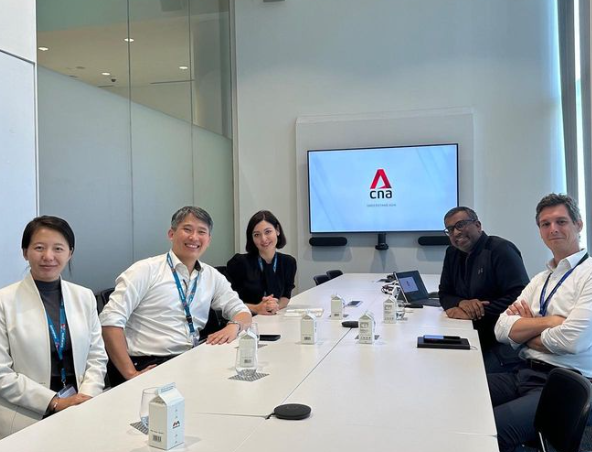
As part of the drive to expand Ukraine's outreach to the Global South, the President's Office has attempted to build bridges with Asian government and media organizations. Particularly, its delegation met Singaporean military communications staff, and information ministry officials overseeing propaganda efforts. In addition, Zarivna said, Ukraine’s delegation also met with state-owned media conglomerate Mediacorp editors exploring expanded Asia-Pacific coverage.
“It is especially interesting because this media group includes Asia Now, a leading online media platform in the Asia-Pacific region, and one of the key producers of content and news,” she explained.
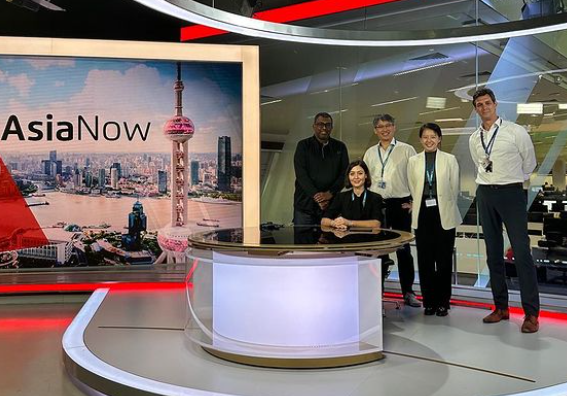
As well, the outreach extends to Thailand. On 16 November, Andrii Yermak, the Head of the Office of Ukraine’s President held a conversation with the acting Secretary General of the National Security Council of the Kingdom of Thailand, Chatchai Bangchaud..
The two officials discussed Thailand's backing of Ukraine's key initiatives at the UN, as well as humanitarian aid to overcome the consequences of Russia's invasion, including providing shelter to displaced Ukrainians.
According to Yermak, they also discussed the implementation of the Ukrainian Formula for Peace, following Thailand’s participation in the third meeting of national security and foreign policy advisers held in Malta on 28 October 2023. The officials also held a conversation on the issue of nuclear safety and the role of the IAEA (International Atomic Energy Agency) in ensuring compliance with relevant universal norms. In addition, they discussed global food security, with Yermak stating that Ukraine is ready to continue serving as its guarantor.
In November 2023, Ukraine’s Minister of Foreign Affairs Dmytro Kuleba held talks with his South African counterpart, Minister of Foreign Affairs Naledi Pandor. These were the first talks of Ukraine with South Africa since 1998. The ministers discussed cooperation within the African Union, intensifying communications with African countries, and Ukraine’s participation in African free trade.
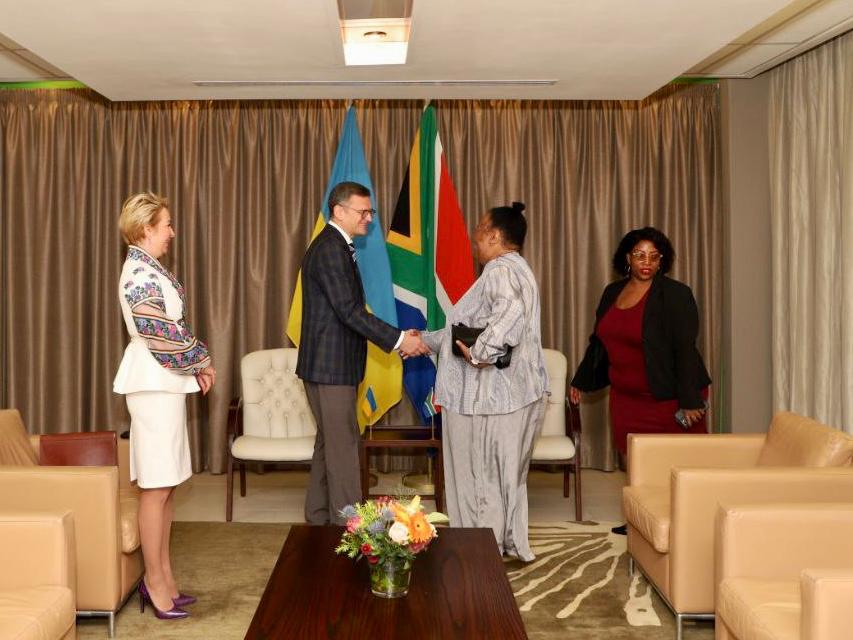
After the talks, the foreign ministers signed a memorandum on developing cooperation in diplomatic education and research between their departments.
“The Global South can jointly influence Russia and force the Kremlin to change its position in the war against Ukraine,” Ukraine’s Minister of Foreign Affairs Dmytro Kuleba said in an interview with Arab News.
Connecting the dots with the Global South would not be so fast. As Vorozhbyt explained, over the last 30 years, Ukraine as a state wasn't developing its relations with the countries of the Global South.
“Among the 19 African states that the Ukrainian President has spoken with since the full-scale invasion began, 9 were the first such conversations in Ukraine's history of diplomatic relations. After the initial tour by the Foreign Minister, some African states changed their positions in UN voting," Vorozhbyt explained, "which means Ukraine has to work in small steps - speaking together, looking for common ground. This boost in cooperation shows that it is indeed important."
Read also:
- Russia’s child brainwashing handbook: victim from 78 years ago speaks out
- Holodomor 90th anniversary: Ukraine remembers victims of genocidal famine amid genocidal war
- Ukraine’s first blood transfusion in trench paves way for increased combat survival rates
- “No David and Goliath, just consistent genocide of Ukrainians”: writers reflect on Russia’s war

